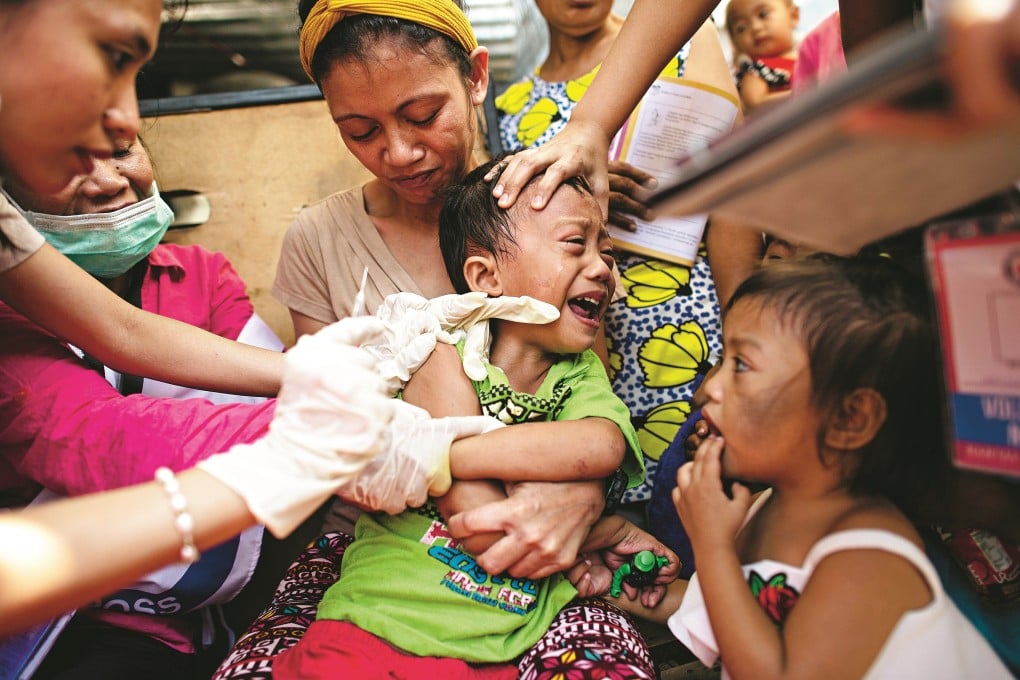Dengue fever threat looms in Philippines amid vaccine fears and deadly measles outbreak
- Health authorities in the Philippines face an uphill battle against potentially fatal infectious diseases because of distrust in an immunisation programme
- Controversial anti-dengue vaccine Dengvaxia may have caused several deaths

As Filipino families head to the beach, the mountains or just chill at home for the long spring-summer break at the end of March, health authorities are hoping the two-month holiday will provide respite in an ongoing war against measles and a worrying rise in dengue fever cases.
The measles outbreak, which began about a year ago, shows no signs of abating. As of March 8, about 28,500 people, mostly children, had fallen ill with the highly contagious viral infection, and 488 had died. Now, as temperatures rise in the Philippines, exacerbated by the onset of an El Nino climate event, a top World Health Organisation (WHO) official is warning the country faces a significant upsurge in cases of another fatal disease – the mosquito-borne dengue fever virus.
Dr Gundo Weiler, WHO country representative to the Philippines, told the South China Morning Post that almost 40,000 cases of dengue were reported in the country from the beginning of January to March 2, with 150 deaths.
“This is up from the 24,000 cases in the same period in 2018. So we do see significant increase in dengue cases,” Weiler says. He warned of a “high dengue caseload year” in 2019.

Again, children are vulnerable and those who have been infected by dengue previously run a higher risk of dying from a second bite from an Aedes aegypti mosquito, which transmits the virus. Complicating matters, Weiler says, is a controversy surrounding the Dengvaxia dengue vaccine, the world’s first, produced by French manufacturer Sanofi Pasteur.